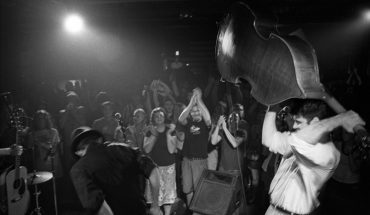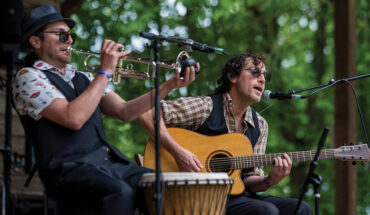The musician behind Che Apalache offers a unique twist on the traditional genre, one infused with International travels and social messages.
by David Menconi | photography by Bryan Regan
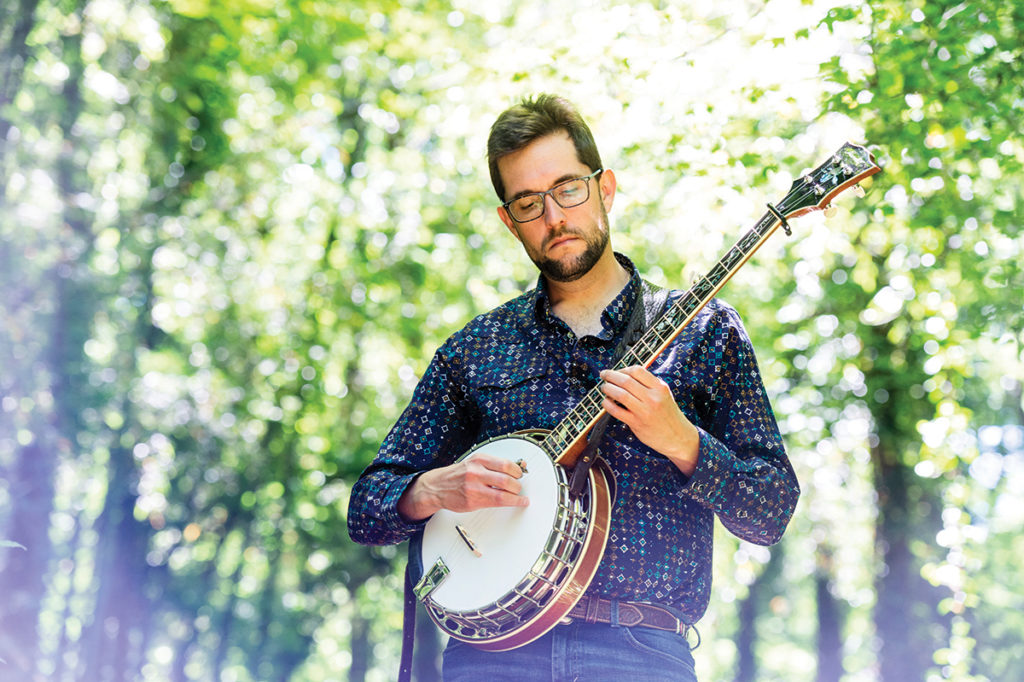
Joe Troop is the essence of a worldly musician — he has literally lived around the world. With a style forged from time spent in Spain, Japan and Argentina, he plays music that sounds like an exotic mixture of these places, all filtered through the bluegrass of his North Carolina roots.
“Right now, I’m all about community building,” he says. “I want to be a presence in Durham and build something I can take elsewhere. I’m already bringing everything I learned from being out of the country for 14 years back home.”
Troop, 39, grew up in Winston-Salem and fell in love with bluegrass music as a teenager at summer camp. Around the same time, he realized he was gay, and he is still one of the few openly gay musicians in bluegrass. Enrolling at the University of North Carolina at Chapel Hill took him overseas for the first time in 2002, to Spain on a foreign-exchange program, and he went on to live in Japan for a few years and Argentina for a decade. All the while, he continued honing his skills on banjo and fiddle.
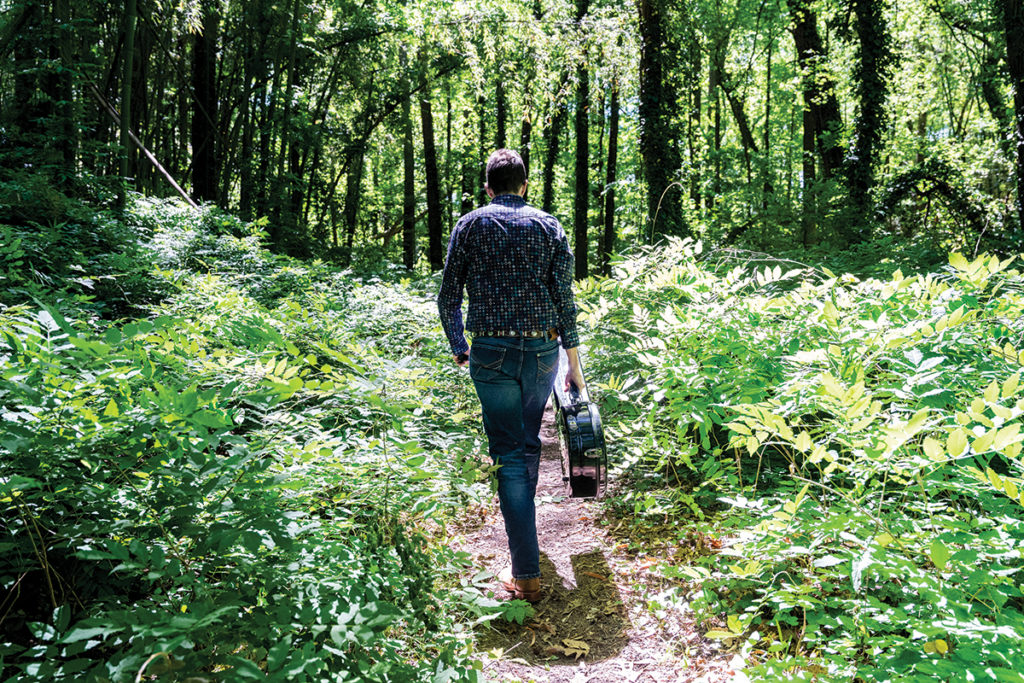
Troop eventually landed in Buenos Aires as a music teacher and formed the “Latin grass” band Che Apalache with some of his best students. The group was a musical and cultural polyglot, making worlds collide in multiple languages and songs that did not shy away from hot-button political issues. “The Wall,” one of the most striking songs on Che Apalache’s Grammy-nominated 2019 album Rearrange My Heart, is a broadside against then-President Trump’s proposed wall on the southern U.S. border — in the style of a cappella bluegrass gospel. “Lord and if such nonsense should come true/Then we’ll have to knock it doooooown” is a line that never fails to draw cheers during live performances.
Most of Troop’s work has activist strains, including his 2020 video series Pickin’ for Progress, an outreach program to register more progressive voters across the American South. He recently performed in Freedom Riders, a traveling theatrical show about the integration of bus lines in the South during the Civil Rights era. And Troop’s 2021 solo album, Borrowed Time, included a song called “The Rise of Dreama Caldwell,” named after an activist working to reform the cash-bail system in North Carolina’s Alamance County.
“Joe is an impressive person and an impressive talent,” says banjo legend Béla Fleck, a regular collaborator. “He’s passionate, cares deeply about injustice in the world and he’s not afraid to take a stand. Combine that with his amazing abilities as a multi-instrumentalist, vocalist and composer, and you’ve got a powerhouse.”
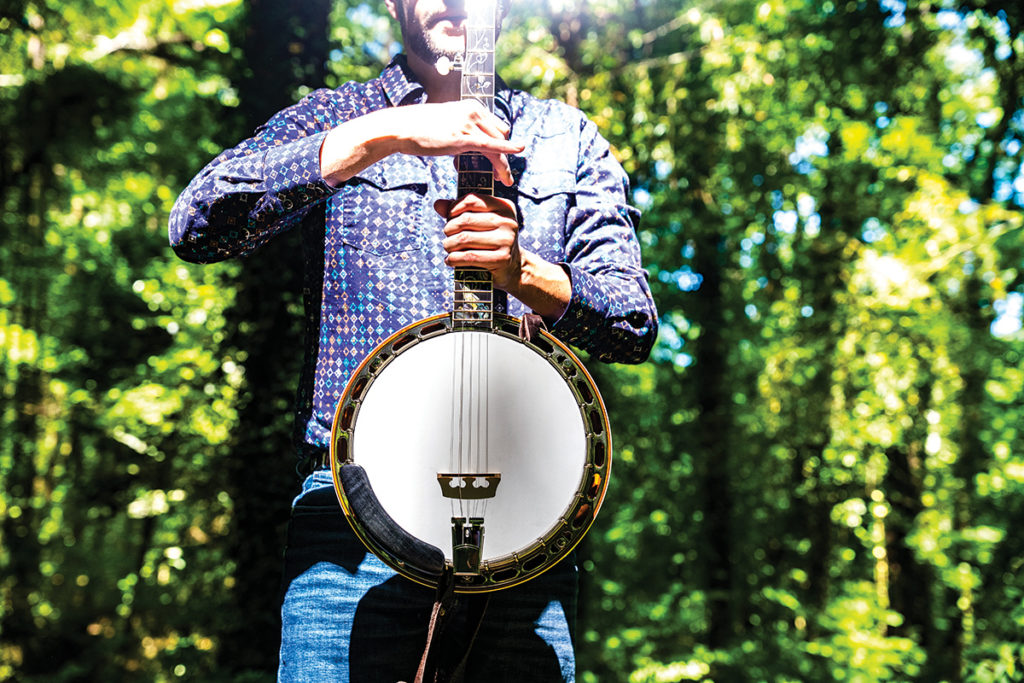
You could say that Troop plays bluegrass with various accents rather than straight-up. Many of the songs he’s written both solo and with Che Apalache include lyrics in Spanish, and the arrangements often sound like they’re filtered through a Mariachi band. Rearrange My Heart includes a song with lyrics in Japanese called “The Coming of Spring.” “The guys were messing around on their instruments, and I walked in and said it sounded like Japanese music,” says Troop. He wrote a melody, and with some translation help from one of his UNC professors, lyrics to go with it. “It’s a portrait of spring in a little mountain village in the middle of Japan,” he says. “We’re all really proud of that song.” Troop’s current local bands include Joe Troop & Friends and a duo with Larry Bellorín, a Venezuelan folk musician who is also an asylum-seeker in Raleigh.
“He’s a living legend and an incredible singer,” Troop says of Bellorín. “And right now, he’s working a construction job, which I think is a crime against humanity. But his dream is to make a living playing music in the States, which I hope to help him do.”
After playing a series of weekly residency performances at The Fruit in Durham this April, Troop plans to spend the rest of 2022 touring, teaching at music camps and recording. Hot Rize mandolinist Tim O’Brien, another blue- grass heavy hitter who played on Troop’s Borrowed Time album, says Troop has “buckets of talent and enough energy to power a small city.”
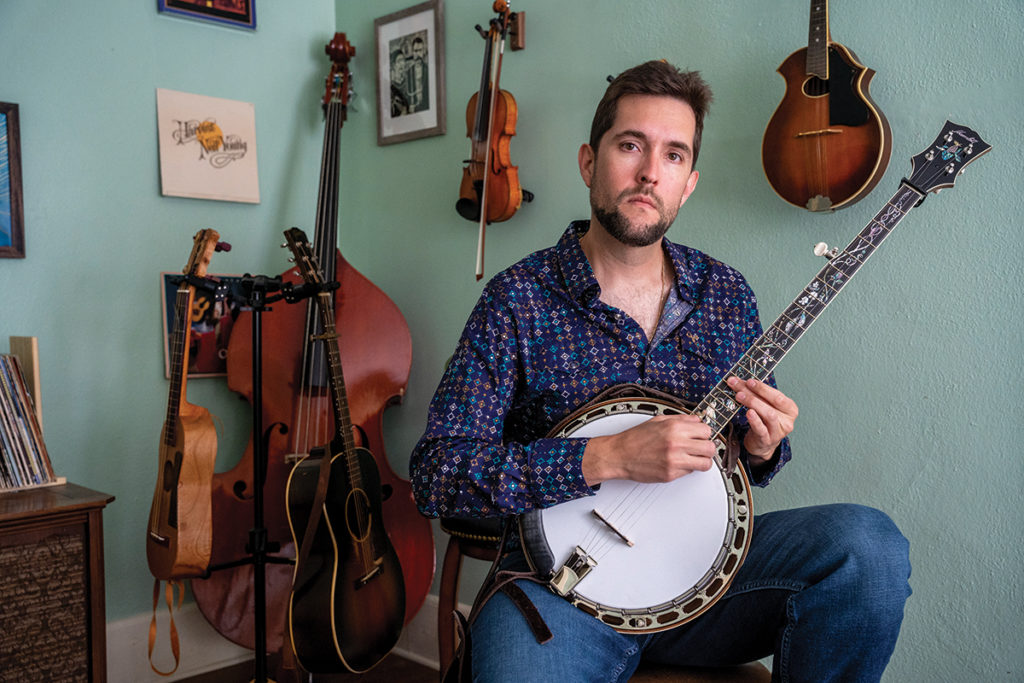
“The world is fortunate that he trains his force on social justice,” O’Brien says. “He cut through the fog in a convincing way with Che Apalache and his solo recordings. His musicianship is world class and his influences very diverse, but he really sneaks up on listeners to deliver important messages, too.”
The pandemic hit at a particularly unfortunate time for Troop, just as Che Apalache was building momentum with a Grammy nomination for Rearrange My Heart. The shutdown canceled a year’s worth of scheduled touring, and Troop hunkered down in North Carolina while Che Apalache’s other three members returned to Argentina and Mexico. They’ve been unable to reconvene, although Troop remains hopeful.
“The future of Che Apalache is a mystery,” Troop says. “I’m trying to figure out a way to revive it. The pandemic was like the house burning down, and 2020 was ashes. Then, 2021 was foundation work, trying to rebuild it. I’ll keep building in 2022. I hope to have a chimney up by December.”
__
This article orginally appeared in the June issue of WALTER Magazine.

